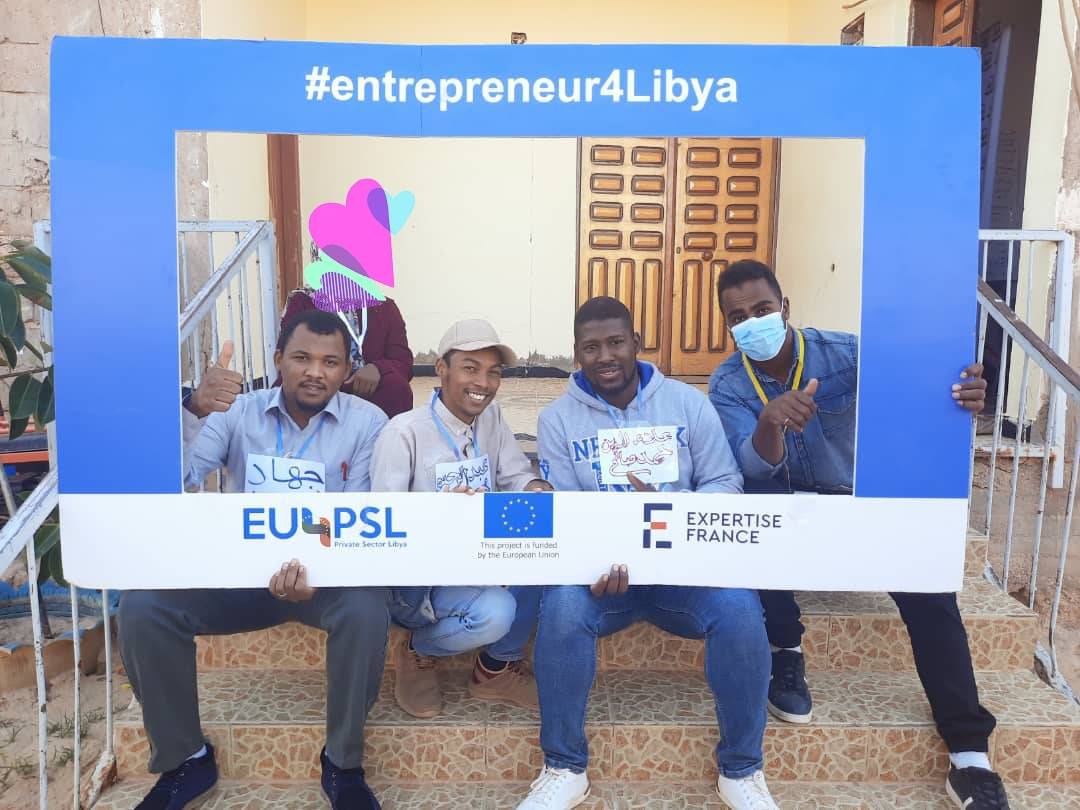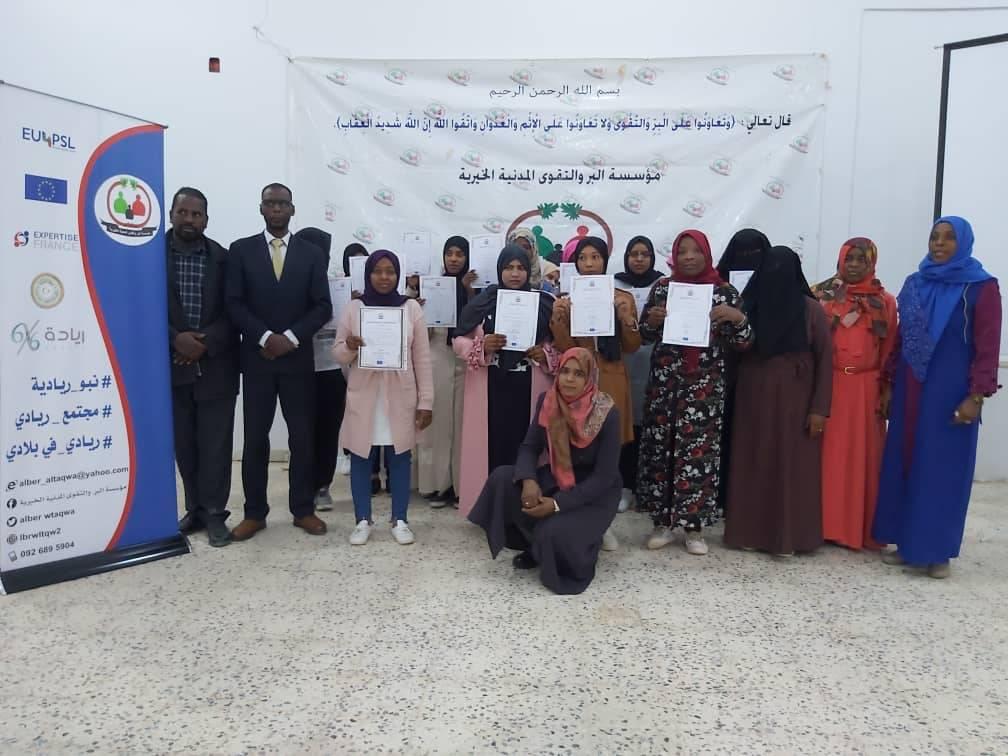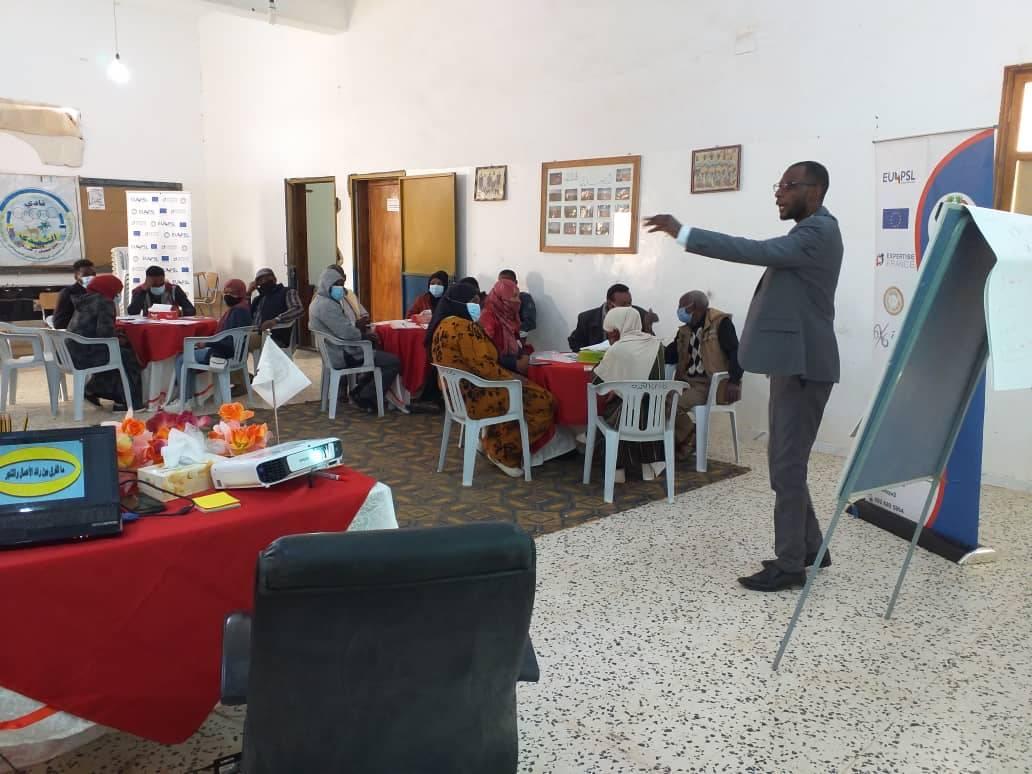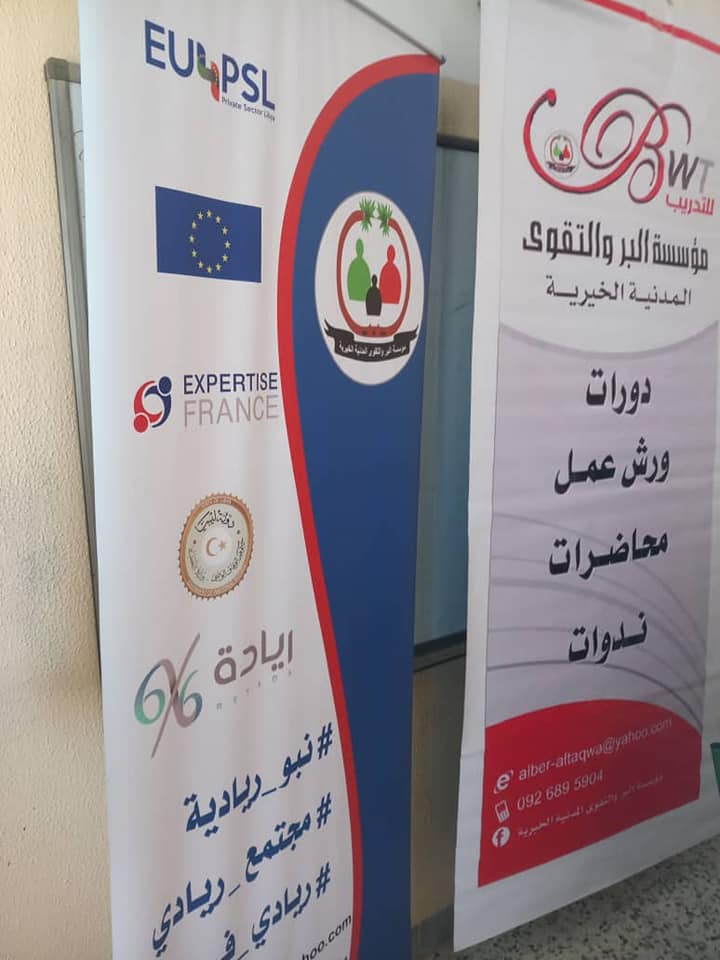Alber wa Altagwa: Driving prosperity in Murzuq
In 2011, Aisha Almahdi and her team set up the ‘Alber wa Altagwa’ association, which has been serving the community for over 10 years now. Backed by the EU-funded programme in support of private sector development in Libya, EU4PSL, the association provided comprehensive training and support, fostering economic growth. Their work helped preserve ancestral traditions and launch successful local businesses.

Alber wa Altagwa association was born in 2011, as Libya grappled with unrest. That context was a catalyst for Aisha Almahdi, who recognised the urgent need for leadership in her Southern city, Murzuq.
Alongside other compassionate individuals, they started the association with their initial efforts focused on coordinating aid for displaced families during the conflict, providing much-needed support. However, Aisha and her team soon realised that there was so much more they could do.
Their mission was clear, according to Aisha, they aimed to “serve humanity, regardless of race, gender, or nationality” in a region with diverse tribes and a mix of migrants from African and Arab countries. Their motto became “Let’s work together for Libya!” and over the years, Alber wa Altagwa evolved, going from immediate relief efforts to long-term capacity building and empowerment.

Citizenship, values and work before EU4PSL
The organisation’s initial training sessions, before working with EU4PSL, were geared toward social peace, peaceful dispute resolution, and community-building. These sessions aimed to raise awareness and foster a culture of cooperation in a post-conflict society.
Over time, Alber wa Altagwa developed a comprehensive approach that was rooted in addressing the community’s strengths and needs. Not only did they focus on raising awareness about vital subjects such as health, exemplified by a breast cancer campaign, but they also engaged in civic initiatives like encouraging voter turnout during elections and promoting awareness about the new Libyan constitution.
Through these diverse campaigns, Aisha and her team identified a pressing need for entrepreneurship. The youth, in particular, expressed a drive to become self-reliant. Aisha adds “Entrepreneurship could also significantly improve the standard of living for families, especially in times of economic hardship.”
These training sessions had immediate impact, but also long term impact for the organisation. “Prior to EU4PSL, our training sessions allowed us to establish a database of youth and their needs. This enabled us to precisely identify our target participants, beginning in 2019. We even directly reached out to some individuals from our database to invite them to participate, because we knew their potential.” Aicha explains.

Economic empowerment for youth, and prosperity for the whole city
Murzuq, far from Libya’s major cities, had many challenges when recovering from the conflict. Aisha highlights the limited economic opportunities and infrastructure deficiencies and adds enthusiastically “We wanted to highlight that waiting for government jobs and salaries was not a viable solution,and that civil society had to take things into itsown hands.” That is why Alber wa Altagwa began focusing on economic empowerment.
In 2019, the association started holding training sessions on entrepreneurship as part of the EU4PSL project.The sessions, designed to raise the public’s awareness about the importance of entrepreneurship, focused on reconnecting with the region’s roots, reminding the community that their ancestors were artisans and farmers who thrived without relying on government salaries. Aicha credits these sessions for positive change, saying “At least now in Murzuq, everyone knows what an entrepreneur is.”
In addition, Alber wa Altagwa held training sessions in practical and technical skills, such as sewing, dressmaking, and pottery. Aiming to inspire their participants, they announced the top 3 students would receive sewing machines to launch their small businesses, a promise they fulfilled. The three young women who received sewing machines still operate successful businesses today, and their enterprises continue to grow. These same three women, in the following year, provided sewing training to other young girls, showcasing the possibilities that await those who work hard. This initiative was part of their women-targeted component of EU4PSL.
Aisha Mahdi recalls the inspiring journey of one of the program’s beneficiaries, Aisha Bacouri. Aisha Bacouri was guided by her mother’s dying wish to preserve and revitalise the ancestral palm farming of their region. Under the programme’s support, Aisha Bacouri managed a sprawling palm farm dedicated to date production. She poured her heart and soul into this, channelling her passion, determination, and newfound knowledge.

EU4PSL: a path towards sustainable economic development
“What is special about EU4PSL is exceptional commitment to providing robust, long-term support over four years in a region that so desperately needs it.” Aisha says. In fact, the programme’s enduring nature enabled Alber wa Altagwa to effectively support their beneficiaries and ensure sustainability. Unlike scenarios where some entrepreneurs might close their startups after a short period, such outcomes were not observed among their beneficiaries, according to Aisha.
Aicha insists on the importance of long-term efforts. She believes in patience and persistence, explaining “The impact of efforts often takes long to materialise, not a few months or even a year.” Aicha believes this is precisely why Libya needs more programmes like EU4PSL.
EU4PSL lasted from 2019 to 2022 and was part of the EU’s long-term commitment to generate economic growth and employment opportunities, particularly for youth and women in Libya. After EU4PSL and its preceding project, SLEISDE (2016 -2020), the EU continues to support private sector and economic development in Libya through the E-NABLE project (2022-2025), a €5 million follow-up programme, that supports private sector diversification, digitalization and financial solutions for businesses.
Through the efforts of Alber wa Altagwa, supported by EU4PSL, the city of Murzug began to see positive changes. The youth found renewed hope and purpose, women gained economic independence, and vulnerable families had new opportunities. Aisha and her team at Alber wa Altagwa did indeed work together for a better Libya.




























 Syria
Syria 


